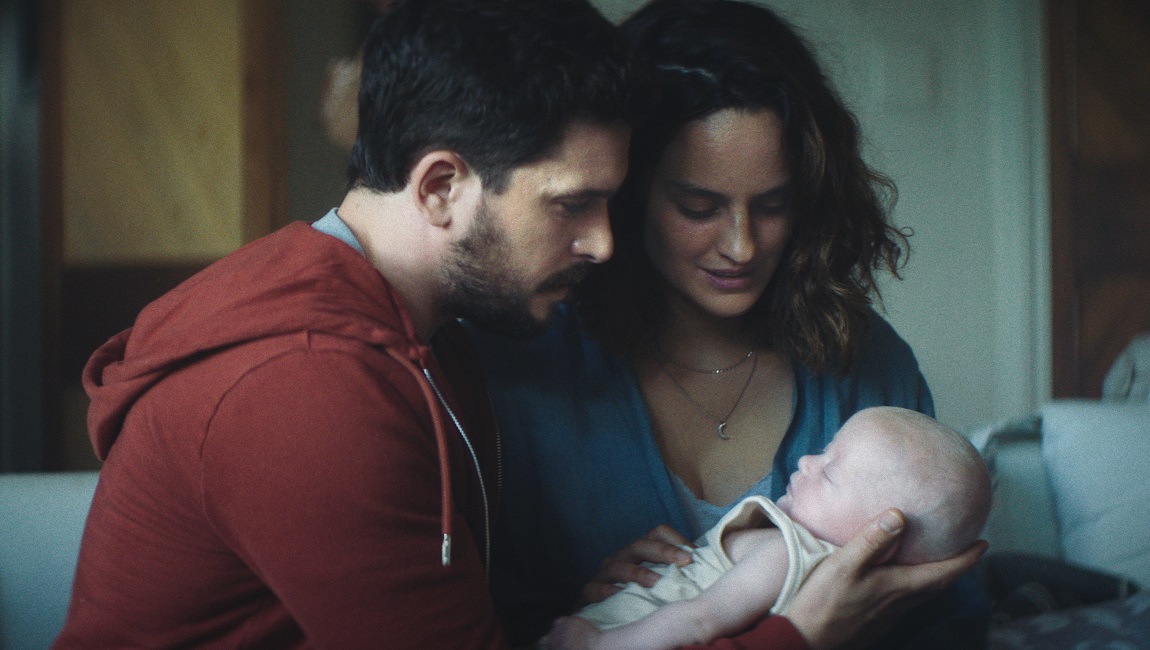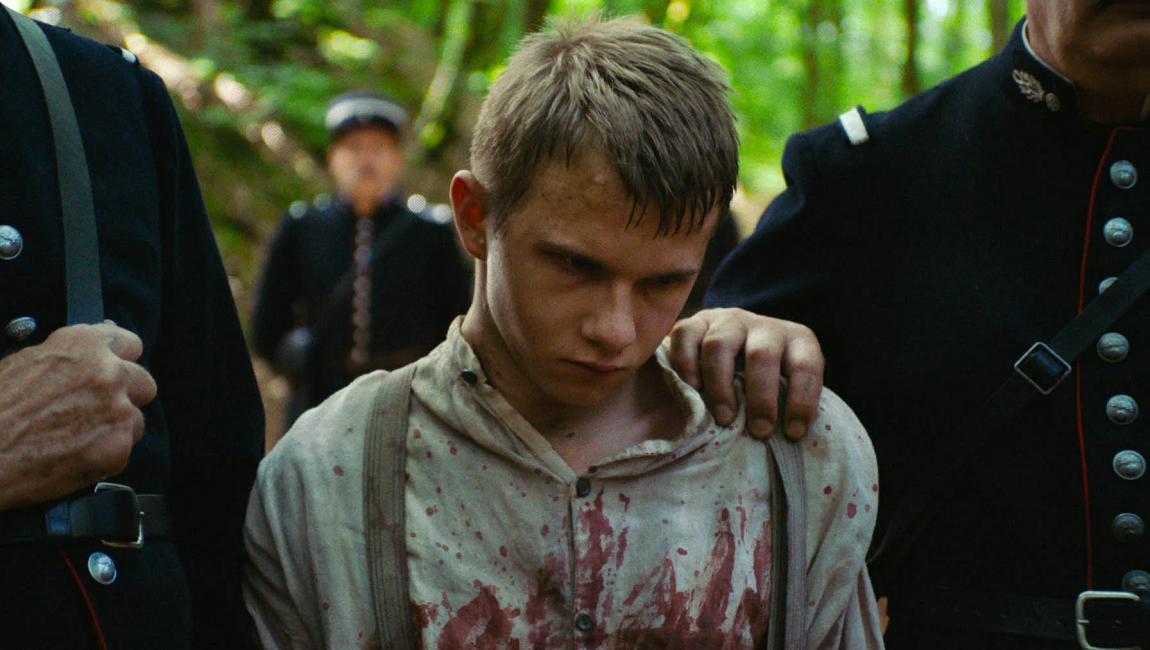With all the various traumas and psychological afflictions on which character-driven horror has touched in recent years, it was only a matter of time before postpartum psychosis got its turn. Following in the footsteps of obvious antecedents like Rosemary’s Baby, Baby Ruby (written and directed by Bess Wohl) ventures into what is largely unexplored territory for horror, grappling with the lesser-known relative of postpartum depression through the story of Jo (Noémie Merlant), a lifestyle blogger, who struggles to adjust to life as a mother to her newborn, Ruby. Isolated from the outside world and perhaps the most forgettable husband character ever captured on film (just barely brought to life by Kit Harington), Jo’s rosy visions of motherhood and her already fragile psyche are torn to shreds as normality persists around her, and her relationship with Ruby becomes more and more dangerous.
Bess Wohl’s directorial debut, Baby Ruby isn’t entirely without promise: The film leans into a formal style that is simultaneously hazy and abrupt, contrasting Merlant’s dissociative performance with admittedly conspicuous, but at times creative editing, creating something that feels at least slightly more tonally unique next to the work of some contemporaries. Wohl’s subject matter is ambitious, and she approaches it with empathy, zeroing in on the mundanity and condescension faced by new mothers with a precision that is both sharply effective and oddly gentle. Even before the more contentious elements of this film’s screenplay are set in motion, Wohl stays firmly away from the reductive, refusing to draw a caricature of what is often a vilified mental disorder. Instead, this film’s humanistic treatment of postpartum psychosis (enhanced by Merlant’s fully committed performance) is grounded by Jo’s frantic grasping at straws for sanity and her and palpable anxiety, and instead of having to resort to tasteless depictions of her subject, all Wohl needs to do to illustrate the psychological tensions at play is to let her audience listen to a baby’s cries just as often as its long-suffering mother might have to.
The problem, then, is that a film cannot survive on the strength of one performance and a screenplay full of good intentions. While tonally Baby Ruby seems to achieve what it sets out to do, the film meanders away from anything more novel or provocative, unable to decide on a direction. Despite drawing on influences such as Ira Levin-penned satirical horrors (the aforementioned Rosemary’s Baby, The Stepford Wives), Wohl never commits to genre nor to drama, stretching the tone she establishes to a breaking point even for this relatively short runtime. The result is a film that feels somewhat neutered compared to its acidic ancestors, while also lacking any real pathos. Jo is the only character who feels more than thinly sketched, but even she has less interiority than perhaps is needed in a character study like this — even before motherhood, she’s a shell of a person, a characterization that isn’t helped any, again, by Harington’s lifeless portrayal of her husband. Baby Ruby isn’t without merit, but for a film with such compelling subject matter, it considerably underdelivers on nearly every front, never living up to its own potential or venturing beyond flashy but tired horror imagery.
Published as part of InRO Weekly — Volume 1, Issue 6.







